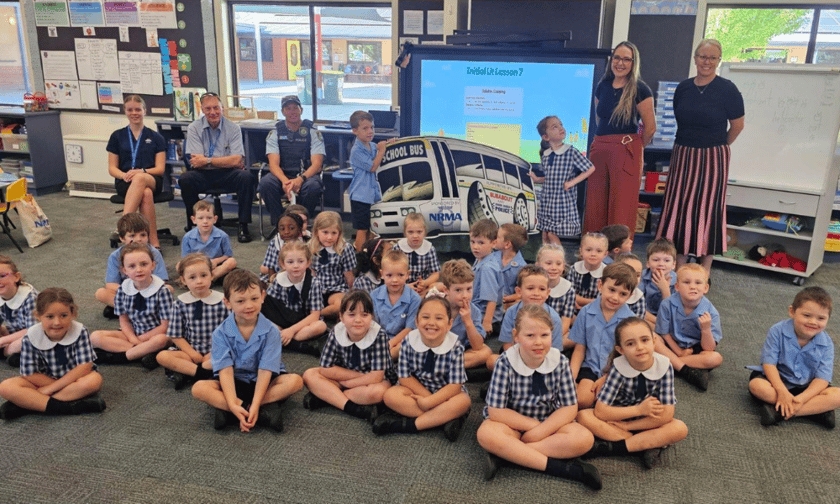

As Easter travel activity picks up across Australia, insurers are expanding public safety messaging and educational initiatives aimed at reducing transport-related incidents.
NRMA Insurance and RACQ Insurance have separately highlighted efforts targeting both school-aged children and broader road user behaviour, particularly in regional and tourist-heavy areas.
NRMA Insurance has completed the latest rollout of its annual school bus safety education program, reaching approximately 2,000 kindergarten students in the Central West and Riverina regions of New South Wales.
The initiative, which has been running for nearly two decades, involves in-classroom safety sessions followed by practical learning experiences aboard a school bus.
Christine Hillis, who helped launch the program and continues to represent NRMA Insurance in its delivery, said the initiative is designed to promote safer travel habits among young students navigating school transport, especially in regional locations where road environments differ from metropolitan areas.
“Bus travel can be a daunting experience for school children and their parents. Our goal is to educate and instil good habits from a young age. We aim to teach children essential safety protocols when traveling by bus and to give parents peace of mind that their children are well-prepared,” she said.
She noted that the insurer partnered with NSW Police and local transport providers to ensure the content is reinforced both in the classroom and on the bus.
In February and March, the program was presented at over 30 schools in towns including Wagga Wagga, Cowra, Parkes, Forbes, Narrandera, and Young.
In a separate development, RACQ Insurance has raised concern over a rise in road incidents involving bicycles and scooters in Queensland.
According to internal claims data, the insurer received 186 claims relating to such incidents between March 2024 and February 2025 – up from 153 the previous year. Areas with significant tourist movement such as the Gold Coast, Townsville, and Sunshine Coast were identified as hotspots.
RACQ’s general manager of advocacy, Joshua Cooney, said the increase in incidents points to a need for shared responsibility between motorists and riders.
“We’re seeing a fairly even split between motorists and riders being at fault, highlighting the need for all road users to prioritise safety and be mindful of each other,” he said.
A member survey conducted by RACQ revealed gaps in driver understanding of cyclist-related road rules. While 75% of drivers encounter cyclists regularly, only 10% claimed to know all relevant traffic laws. Furthermore, 12% of respondents reported close calls, and one in four admitted to limited familiarity with cyclist safety requirements.
The insurer also flagged an emerging risk window in the late afternoon, with most reported incidents occurring between 3pm and 5pm. Fatigue and lower visibility during these hours are believed to contribute to the trend.
Nationally, other states are observing similar challenges. South Australia recorded 12 road deaths in January 2025, marking the worst monthly toll since 2019. In Western Australia, a survey by RAC WA indicated that more than half of respondents had experienced or witnessed unsafe activity at designated high-risk sites.
